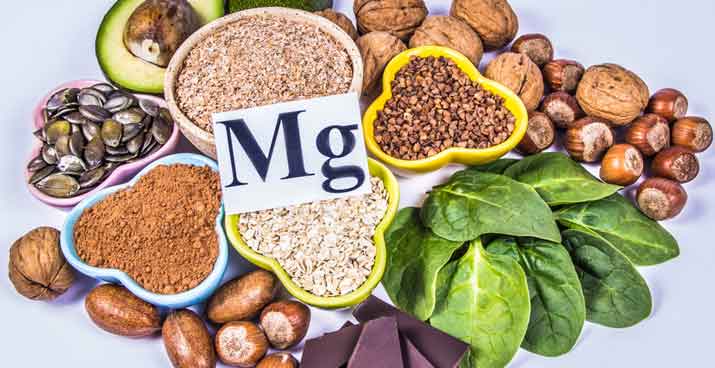Magnesium is an important mineral that your body needs to function in your inside parts. It helps you do a variety of important things including produce energy, regulate blood sugar, and cause necessary chemical reactions in the body. Magnesium helps your body conduct nerve impulses, muscle contraction, and normal heart rhythm by playing a role in the transport of calcium and potassium. Magnesium is an important source for our heart, muscles, and kidneys all need this to work properly. The mineral also helps build teeth and bones. So how does this relate to weight loss? The mineral might be helpful for people who need to lose weight and who love the healthy living. But that doesn’t mean the scale will budge after you start taking the supplement. Add magnesium to your diet and do proper exercise it might help you lose weight.
Does Magnesium Help With Weight Loss?

Magnesium may help regulate blood sugar and insulin levels in people who are overweight or obese. Taking higher amounts of magnesium helps better control insulin and glucose blood levels. This same study also showed magnesium helps with bloating and water retention. Magnesium supplements might help reduce unpleasant menstrual symptoms in women and reducing the weight, because of their ability to reduce bloating and water retention. If you taking magnesium alone have not been shown effective weight loss. Instead, that your best strategy for long-term weight loss includes restricting calories, eating a healthy colorful diet, and exercising regularly.
Should You Add Magnesium To Your Diet?
In general, magnesium deficiencies are rare. But many Americans don’t get as much magnesium as they should in their diets. Magnesium is found naturally in many different foods. These foods are also healthy and also helpful to weight loss, so incorporating them into your diet could contribute to healthy weight loss. Magnesium-rich foods include dark leafy greens, quinoa, whole grains, nuts, beans, fish, yogurt, and tofu. Some health conditions can lead to magnesium deficiencies, including gastrointestinal diseases like irritable bowel syndrome which is IBS, Crohn’s disease, and celiac disease. Stomach viruses that cause vomiting and diarrhea may also cause a temporary magnesium deficiency. Drinking too much alcohol or caffeine regularly can affect your magnesium levels, too.
How Much Magnesium Does Your Body Need?
Magnesium supplements are available at many vegetables, nuts, and healthy food. Supplements come in many different forms, including magnesium oxide, magnesium chloride, magnesium gluconate, magnesium citrate, and magnesium orotate. Some types of magnesium supplements are absorbed better than others in the body. If you want to add magnesium supplements into your diet, take consult with your doctor about the best form and dosage for your needs. Here is the great option to know more details about the magnesium for weight loss jotform.com/prodrev/slimymed-premium-test.
How To Increase Magnesium Levels In The Body?

At least take 310 mg of magnesium for adult women and 400 mg for adult men daily, this will helpful for all the peoples. Foods like whole-wheat, dark leafy greens, quinoa, certain nuts, and dark chocolate are all high in magnesium and can help give you a boost fast. When looking at diet, you had the dark chocolate down, but the others you were not eating regularly enough to make a consistent difference. Nearly two-thirds of us in the Western world don’t meet their daily requirement for magnesium through diet alone. Magnesium supplements and found that there are many different types. This can be very confusing because each type of magnesium is absorbed differently into the body and can affect the body in different ways.
